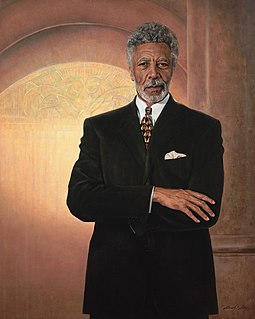A Quote by Gavin Esler
American elections have usually turned on the issues of war, peace and the economy.
Related Quotes
We are organising our enemies into a formidable force, we are The US public has turned against the war, the Republicans and Democrats have turned against the war. And so when the American public turns against the war and the Congress turns against the war, it suggests that Americans feel we cannot win that war in those conditions. So the Iraqi Commission says, "Well, we can't win this war militarily, we need to reassess potential allies." There's Syria, there's Iran.
There is a clear and strong link between the economy's present woes and the Iraq war. The war was at least one of the factors contributing to rising oil prices - which meant Americans were spending money on imported oil, rather than on things that would stimulate the american economy. Hiring Nepalese contractors in Iraq, moreover, doesn't stimulate the American economy in the way that building a school in America would do - and obviously doesn't have the long term benefits.
The twentieth century had dispensed with the formal declaration of war and introduced the fifth column, sabotage, cold war, and war by proxy, but that was only the begining. Summit meetings for disarmament pursued mutual understanding and a balance of power but were also held to learn the strengths and weaknesses of the enemy. The world of the war-or-peace alternative became a world in which war was peace and peace war.
Only by transforming our own economy to one of peace can we make possible economic democracy in the Third World or our own country. The present economy generates wars to protect its profits and its short-term interests, while squandering the future. Unless we transform the economy, we cannot end war.
Peace is not just a colored ribbon. It's more than a wristband or a t-shirt. It's not just a donation or a 5 K race. It's not just a folk song, or a white dove. And peace is certainly more than a celebrity endorsement. Peace is a fulltime job. It's protecting civilians, overseeing elections, and disarming ex-combatants. The UN has over 100,000 Peacekeepers on the ground, in places others can't or won't go, doing things others can't or won't do. Peace, like war, must be waged.































